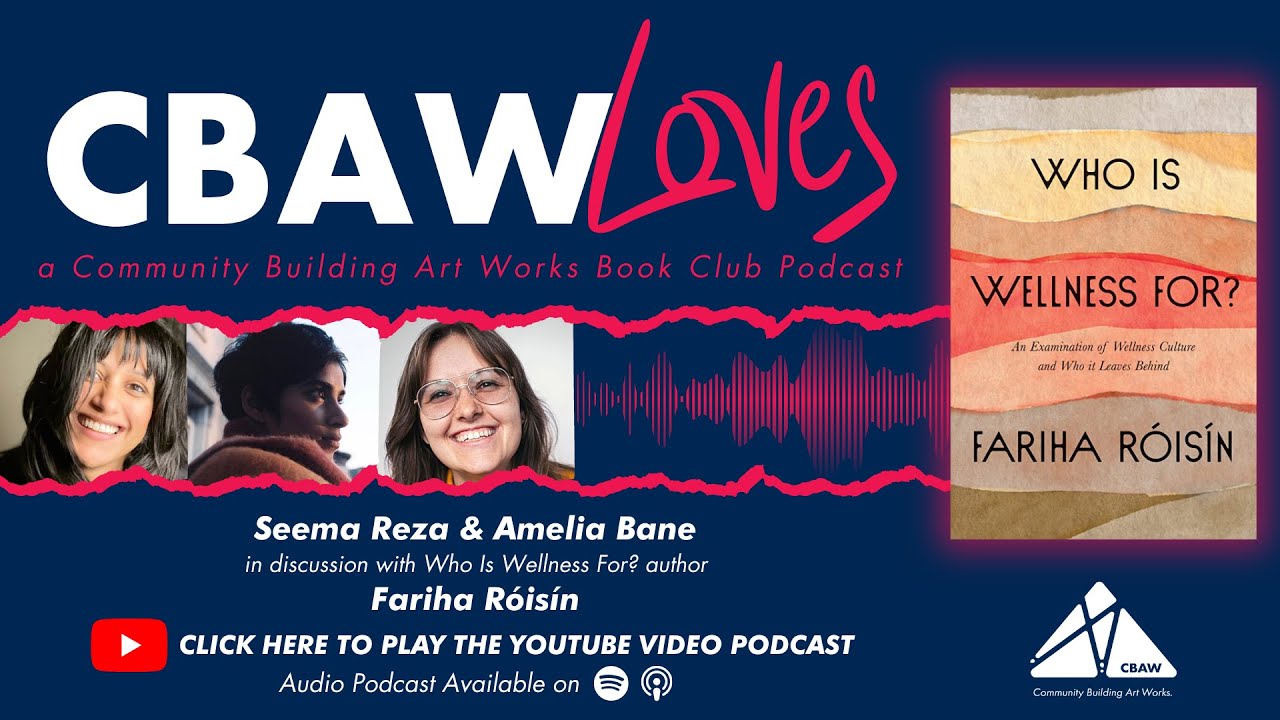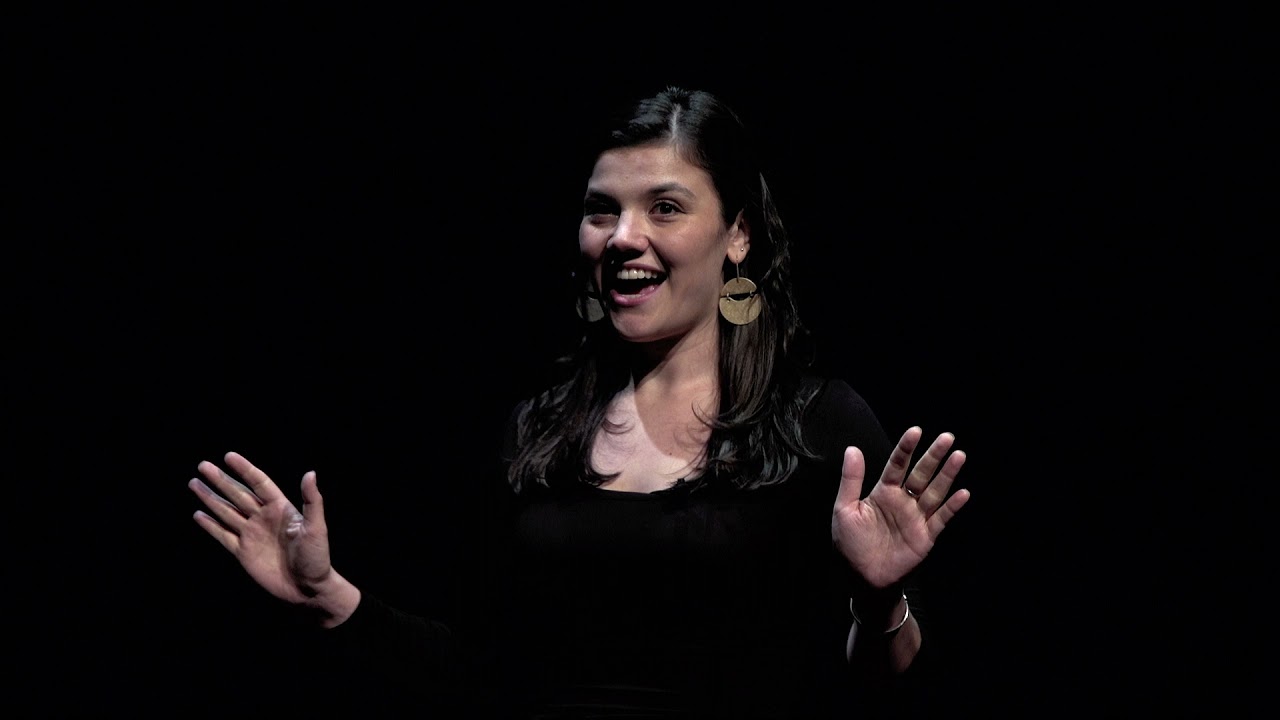In the first of this two-part episode, Seema & Amelia sit down with Fariha Róisín to discuss her book, how she took care of herself while writing, what love means to her, and the energy needed to keep trying to be a good person.
Don’t forget: We want to hear from you! Read the book and and send in your thoughts to cbawloves@cbaw.org or share them on social media using the #CBAWLOVES hashtag. We will read or play your comments on a future episode!
About Who Is Wellness For?
The multi-disciplinary artist and author of Like a Bird and How to Cure a Ghost explores the commodification and appropriation of wellness through the lens of social justice, providing resources to help anyone participate in self-care, regardless of race, identity, socioeconomic status or able-bodiedness.
Growing up in Australia, Fariha Róisín, a Bangladeshi Muslim, struggled to fit in. In attempts to assimilate, she distanced herself from her South Asian heritage and identity. Years later, living in the United States, she realized that the customs, practices, and even food of her native culture that had once made her different–everything from ashwagandha to prayer–were now being homogenized and marketed for good health, often at a premium by white people to white people.
In this thought-provoking book, part memoir, part journalistic investigation, the acclaimed writer and poet explores the way in which the progressive health industry has appropriated and commodified global healing traditions. She reveals how wellness culture has become a luxury good built on the wisdom of Black, brown, and Indigenous people–while ignoring and
excluding them.
Who Is Wellness For? is divided into four sections, beginning with The Mind, in which Fariha examines the art of meditation and the importance of intuition. In part two, The Body, she investigates the physiology of trauma, detailing her own journey with fatphobia and gender dysmorphia, as well as her own chronic illness. In part three, Self-Care, she argues against the self-care industrial complex but cautions us against abandoning care completely and offers practical advice. She ends with Justice, arguing that if we truly want to be well, we must be invested in everyone’s well being and shift toward nurturance culture.
Deeply intimate and revelatory, Who Is Wellness For? forces us to confront the imbalance in health and healing and carves a path towards self-care that is inclusionary for all.
About Our Guest
Fariha Róisín is a multidisciplinary artist, born in Ontario, Canada. She was raised in Sydney, Australia, and is based in Los Angeles, California. As a Muslim queer Bangladeshi, she is interested in the margins, liminality, otherness, and the mercurial nature of being. Her work has pioneered a refreshing and renewed conversation about wellness, contemporary Islam, and queer identities and has appeared in The New York Times, Al Jazeera, The Guardian, Vice, Village Voice, and others.
In 2015, she co-wrote a self-care column for The Hairpin, an astrology column for them in 2017, and in 2019 was the writer-at-large and culture editor for The Juggernaut. From 2012 to 2016 she co-hosted the podcast Two Brown Girls with writer and friend Zeba Blay. In 2020 co-founded Studio Ānanda, an expansive space of cultivation and archive for radical, anti-colonial wellness.
She is currently the deputy editor of Violet Book, sits on the advisory board of Slow Factory, and also writes a weekly newsletter.
Róisín has published a book of poetry entitled How To Cure A Ghost (Abrams, 2019), a journal called Being In Your Body (Abrams, 2019) and a novel named Like A Bird (Unnamed Press, 2020) which was named one of the Best Books of 2020 by NPR, Globe and Mail, Harper’s Bazaar, a must-read by Buzzfeed News and received a starred review by the Library Journal. Upon the book’s release, she was also profiled in The New York Times. Her first work of nonfiction Who Is Wellness For? An Examination of Wellness Culture and Who it Leaves Behind (HarperWave, 2022) was released last year, and her second book of poetry Survival Takes A Wild Imagination is out Fall of 2023.
source



